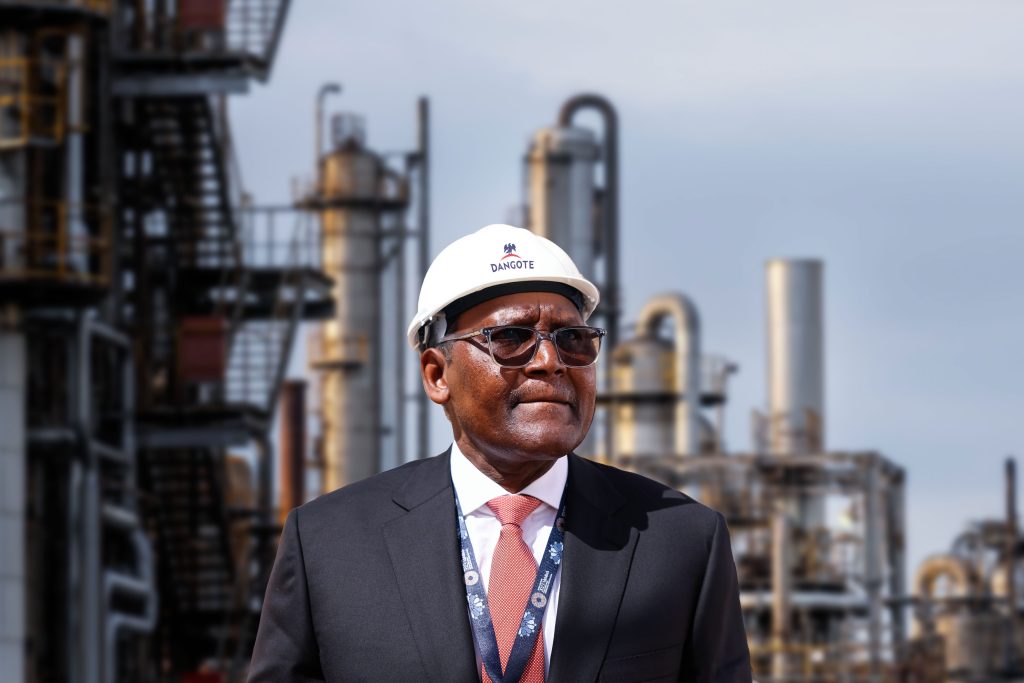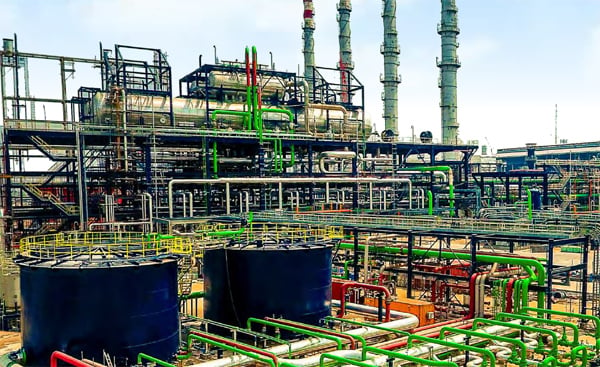General
Dangote refinery set to overtake world’s sixth largest refinery, after expansion to 700,000 bpd
The $20 billion Dangote Petroleum Refinery in Lagos, Africa's largest single-train oil refinery, is undergoing a strategic upgrade to expand its production capacity from 650,000 barrels per day to 700,000 bpd by the end of 2025. The Dangote Petroleum Refinery in Lagos is expanding production cap...
Business Insider Africa
published: Jul 20, 2025


The $20 billion Dangote Petroleum Refinery in Lagos, Africa's largest single-train oil refinery, is undergoing a strategic upgrade to expand its production capacity from 650,000 barrels per day (bpd) to 700,000 bpd by the end of 2025.
- The Dangote Petroleum Refinery in Lagos is expanding production capacity from 650,000 to 700,000 barrels per day by the end of 2025.
- This enhancement aims to position the refinery among the largest globally, with modifications across critical refining units.
- The refinery has been leveraging global supply chains, including purchasing significant amounts of crude oil from the U.S.
This development marks a new milestone in the billionaire's ambitious plan to continue to spearhead the continent's push for energy self-sufficiency.
At launch, Dangote Refinery’s 650,000 barrels per day (bpd) capacity ranked it as the seventh largest refinery in the world and Africa's largest. With its recent upgrade to 700,000 bpd, it now aims to surpass South Korea’s Onsan Refinery, which holds the sixth spot with a capacity of 669,000 bpd.
According to Punch ng, the upgrade is expected to be completed in the fourth quarter of the year and involves modifications across key refining units.
Alhaji Aliko Dangote, President of the Dangote Group, disclosed the ongoing efforts during a media tour of the massive refinery complex in Lagos, Nigeria.
“ Our RFCC is at 85 per cent. We are not up to 100 per cent because there are some modifications that we are doing. It will finish by the end of the year, and we believe we will get to 700,000 bpd, not even 650,000, because all the other components that we have and all the other departments have all (reached 100 per cent). Some are even doing up to 145 per cent. So, we’ve done very well in that area, " The billionaire explained.
The RFCC unit plays a crucial role in converting heavy crude oil into higher-value products like gasoline, diesel, and liquefied petroleum gas. With progress in other units, Dangote remains optimistic about achieving full operational capacity.

Dangote imports crude amid shortage
In a move that underscores the global nature of energy supply chains, and inconsistency with local supply, Dangote revealed that the refinery purchased 19 million barrels of crude oil from the United States between June and July 2025.
In July alone, 10 million barrels were sourced from the U.S., representing 55 per cent of the refinery’s crude feedstock.
The refinery’s establishment was born out of a failed attempt by Dangote to acquire Nigeria’s state-owned refineries during the administration of the late President Umar Musa Yar’Adua in 2007.
That decision, he said, sparked a vision to build a world-class facility that would address Africa’s chronic dependence on imported refined products.
Dangote however warned that foreign players continue to undermine African industries through mass importation strategies, hindering local production. This highlights the challenges faced by African industries in competing with international suppliers.
“Apart from Algeria and Libya, which are self-sufficient in Africa, technically, everybody is an importer” he said.
“If you go to Lome, you will see a massive number of ships. That’s what they do to attack all the industries in sub-Saharan Africa. Even if you look at the refineries in South Africa, they are actually not operating. Only one is now operating in South Africa, but we were able to take this risk” he added.
The billionaire candidly admitted that the refinery journey has been far more complex than anticipated. He said,
"People believe building a refinery is like building a house, but if I knew what we were going to face, I wouldn’t have started it at all."
Despite the challenges, the Dangote Refinery is nearing full-scale operation, symbolizing industrial ambition and a bold attempt to reshape Africa's energy landscape, and reducing reliance on imported fuel and securing economic independence for oil-producing nations.
Dangote also expressed optimism about the future, attributing the group's success to their willingness to take on seemingly impossible challenges. "The luck that we've had now as a group was because we didn’t know what we were getting into, really, and we believe that nothing is impossible." He said.
Olamilekan Okebiorun
Read More